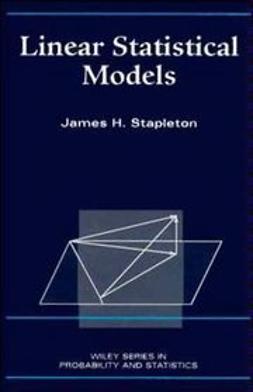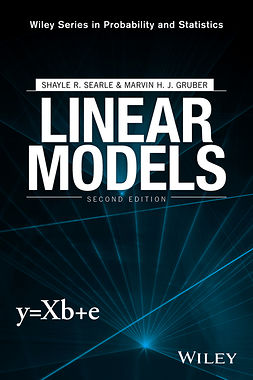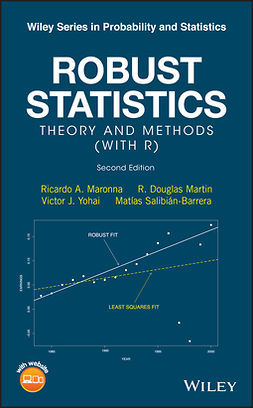Stapleton, James H.
Linear Statistical Models
Developed and refined over a period of twenty years, the material in this book offers an especially lucid presentation of linear statistical models. These models lead to what is usually called "multiple regression" or "analysis of variance" methodology, which, in turn, opens up a wide range of applications to the physical, biological, and social sciences, as well as to business, agriculture, and engineering. Unlike similar books on this topic, Linear Statistical Models emphasizes the geometry of vector spaces because of the intuitive insights this approach brings to an understanding of the theory. While the focus is on theory, examples of applications, using the SAS and S-Plus packages, are included. Prerequisites include some familiarity with linear algebra, and probability and statistics at the postcalculus level.
Major topics covered include:
* Methods of study of random vectors, including the multivariate normal, chi-square, t and F distributions, central and noncentral
* The linear model and the basic theory of regression analysis and the analysis of variance
* Multiple regression methods, including transformations, analysis of residuals, and asymptotic theory for regression analysis. Separate sections are devoted to robust methods and to the bootstrap.
* Simultaneous confidence intervals: Bonferroni, Scheffe, Tukey, and Bechhofer
* Analysis of variance, with two- and three-way analysis of variance
* Random component models, nested designs, and balanced incomplete block designs
* Analysis of frequency data through log-linear models, with emphasis on vector space viewpoint. This chapter alone is sufficient for a course on the analysis of frequency data.
- Author(s)
- Stapleton, James H.
- Publisher
- John Wiley and Sons, Inc.
- Publication year
- 1995
- Language
- en
- Edition
- 1
- Series
- Wiley Series in Probability and Statistics
- Category
- Natural Sciences
- Format
- Ebook
- eISBN (PDF)
- 9780470317761
- Printed ISBN
- 9780471571506










